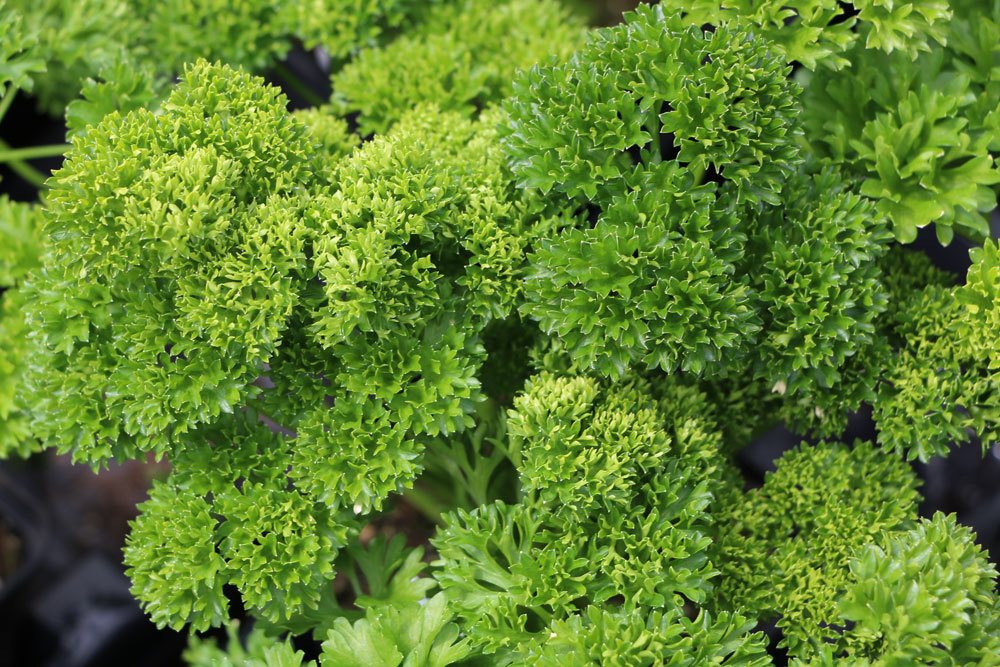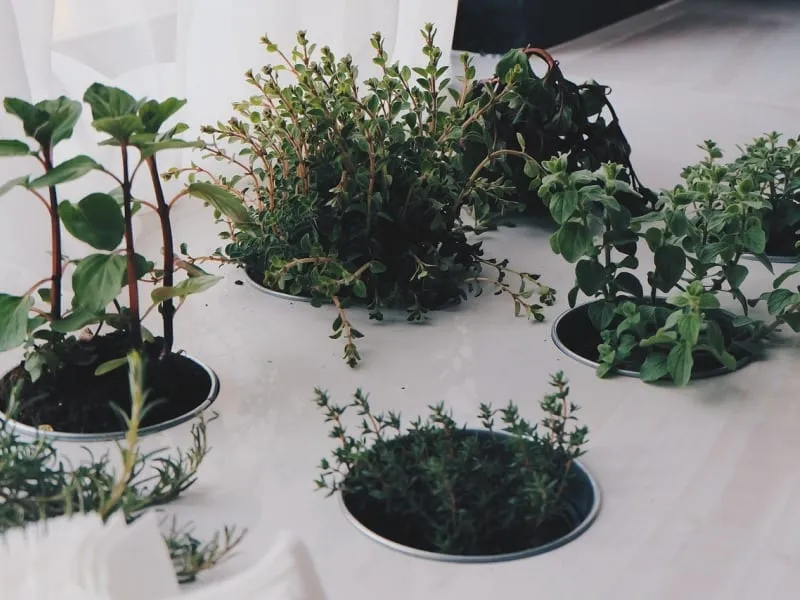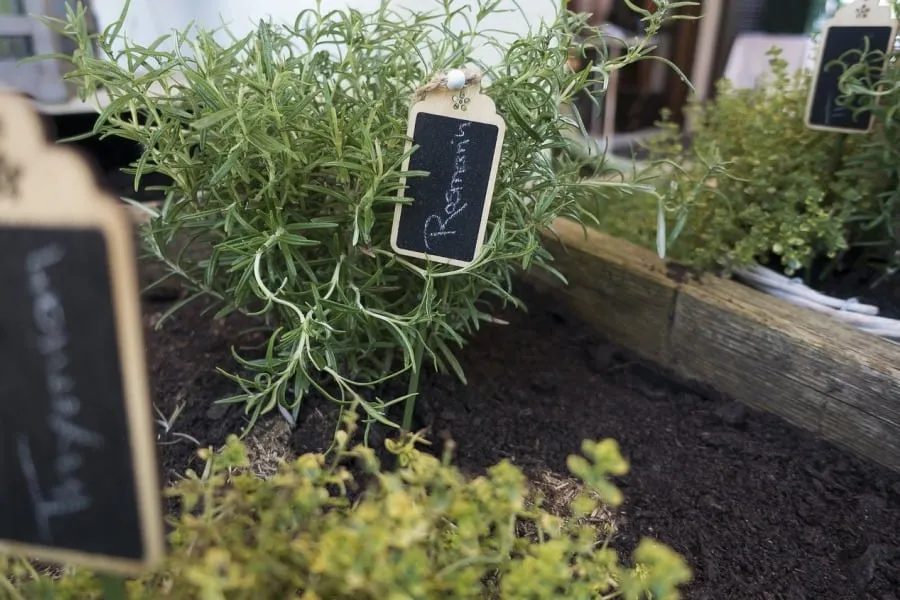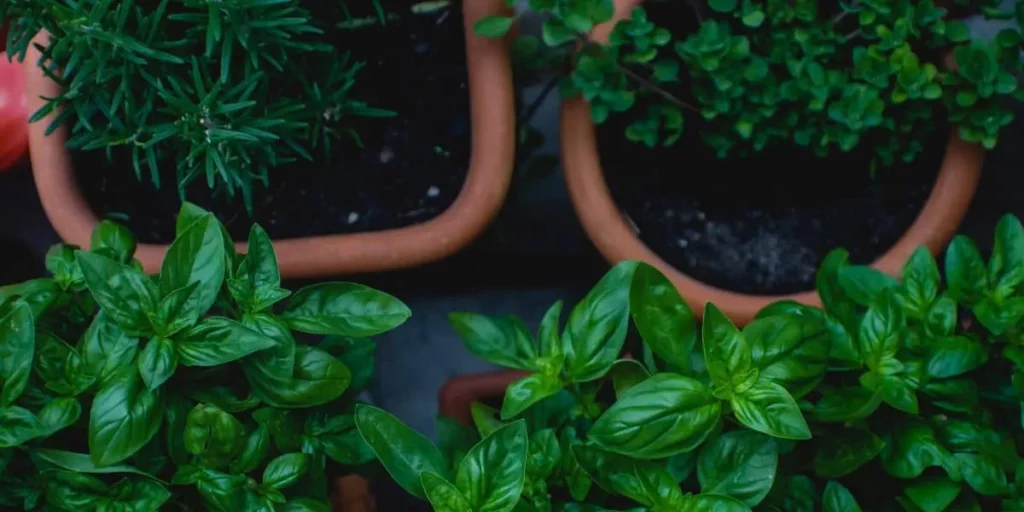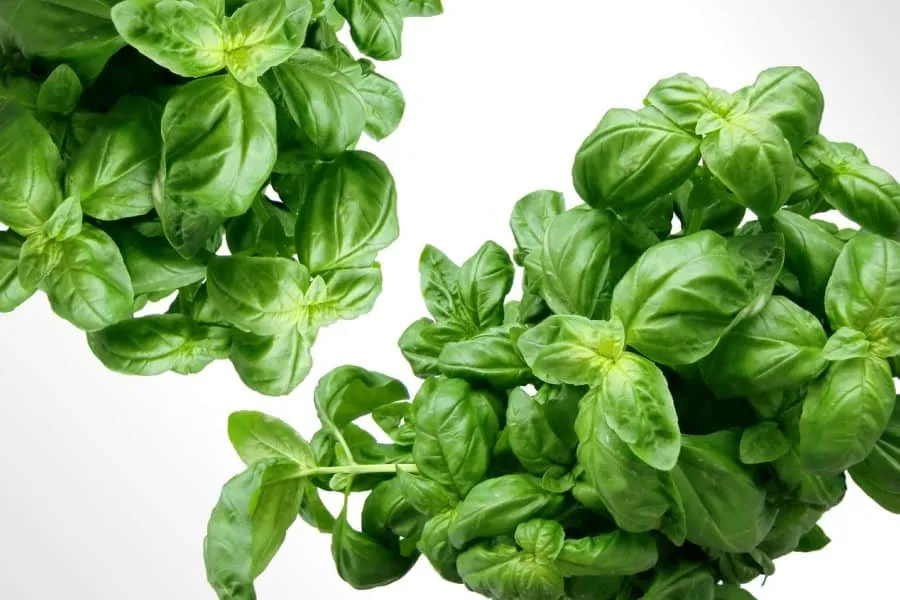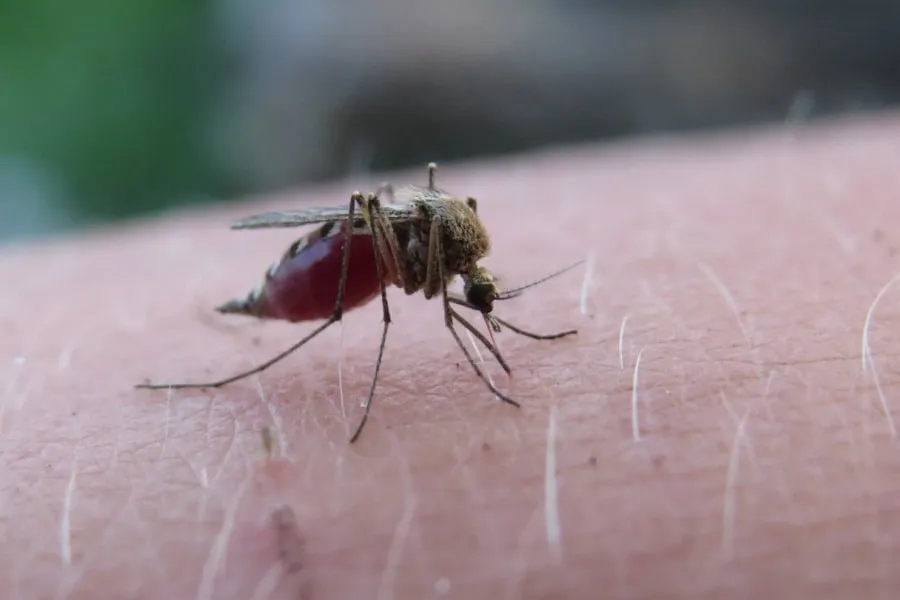Cats, dogs and other pets can be provided with herbs, which can have a positive effect on the health of animals. Numerous species are available to humans, including parsley. Petroselinum crispum is an essential kitchen herb, which is used for a variety of dishes. Because of the essential oils it contains, pet owners worry about the possible toxicity of the herb if their four-legged friends accidentally nibble on them.
Parsley: ingredients toxic?
Parsley is an herb that is toxic only to a limited extent. Pets and humans can tolerate the plant itself in the same way, as long as excessive amounts of the herb are not consumed. The reason for this is the following two ingredients that are present in all parts of the plant, along with vitamins and minerals:
- Apiol
- Oxalate
Oxalate is a substance that promotes the formation of kidney stones in mammals. It is a variant of oxalic acid. Many pets tend to have increased formation of calcium-based kidney stones when oxalates are ingested. The greater the amount of petergreen in the diet, the more of this substance enters the body. Apiol, on the other hand, is a substance found in all parts of the plant and has its highest concentration in the seeds. However, small doses do not pose a problem. If too much of the herb is consumed, the following symptoms of poisoning may occur:
- Nausea
- general restlessness
- allergic reactions
- cardiac arrhythmia
- premature menstruation
- premature labor
- liver damage
- kidney damage
Since parsley is only poisonous if too much of it is ingested, possible poisoning can be prevented in many cases. You will learn what to watch out for in dogs and domestic cats in the coming sections.
Tip: A good example of a high tolerance of the herb are rodents and rabbits. You can feed these small amounts without worrying about poisoning, as long as they are not pregnant animals.
Toxic for dogs?
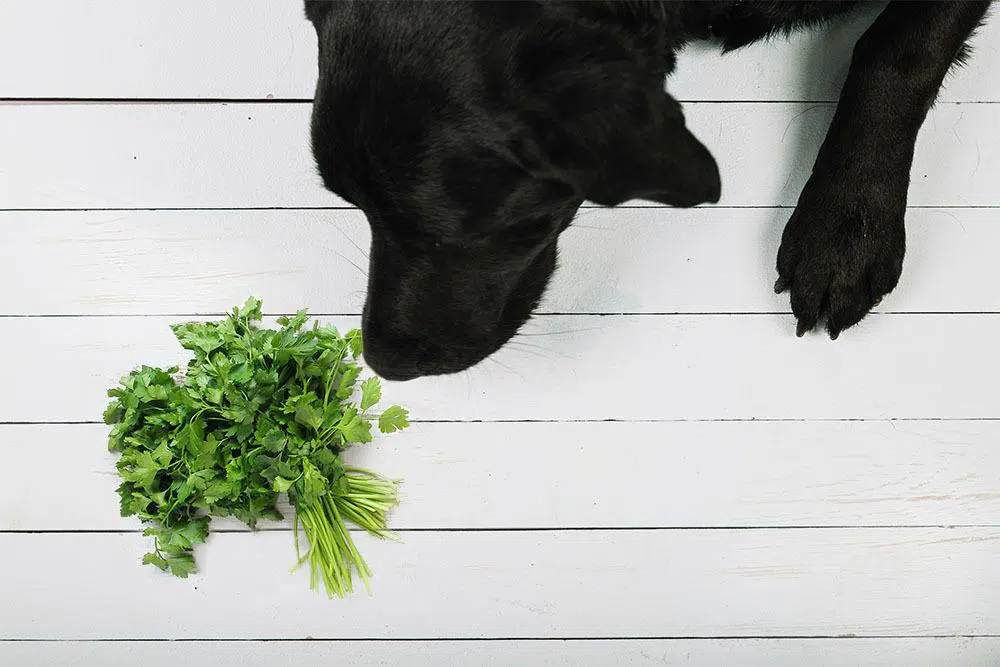
The consumption of parsley is comparable for dogs as for humans. The herb can be easily administered in small quantities as an additive to food or as a remedy for bad breath. In general, the herb has a positive effect on the organism of the four-legged friends:
- strengthens immune system
- has an antibacterial effect
- has an anti-inflammatory effect
- relieves colds
- prevents infections of the urinary tract
Compared to domestic cats, man’s best friend benefits from parsley as long as tolerated amounts are not exceeded. Typical dosages are:
- under 10 kg: 1 pinch
- over 10 kg: max. 1 tsp
You should never add more to the food. Fortunately, a dog rarely eats plants and many are not really fond of the taste, which reduces the risk of accidental ingestion. Since the symptoms of possible poisoning are similar to those in humans, you can tell immediately if your dog has tasted the herb. In addition, Petergreen can cause vomiting. As long as you take care with the herb, nothing will happen to your four-legged friend per se. Just pay some attention to puppies, as they still like to chew on any plant and could consume large quantities in this way.
For cats
For cats, you should consider the same points as for dogs when it comes to the compatibility of the plant. Since the house pets are much smaller than man’s best friend, the toxic amount has a much stronger effect on the organism. In addition, almost every cat is curious. This curiosity that pets have for their surroundings can put them in dangerous situations. Animals are very fond of chewing on all plants in the environment, as the smell appeals to them. Especially domestic cats without outdoor access are affected by this, because they quickly get bored and the plant is an occupation. For this reason, you should make sure that your velvet paw does not have access to the herb if it tastes good to them. A few leaves hardly do any harm. However, the effect is not as beneficial for cats as for dogs.
Feeding to horses
Unlike cats and dogs, horses are enthusiastic about the herb and tolerate it really well. The ingredients have a positive effect on the health of the riding animals and even larger quantities are used as a feed additive. The herb can be administered in the following ways:
- fresh
- decoction
- tea
The application can take place externally and internally. Of course, it must also be ensured that the herb is administered only in between and not to pregnant mares. A permanent feeding with the plant should not be implemented despite the good tolerance. Otherwise, there is no danger to horses if they consume the umbellifer.
Note: Never confuse Petroselinum crispum with the extremely poisonous dog parsley (bot. Aethusa cynapium), which can severely poison horses. The key characteristics to distinguish it are the pure white flowers and the size up to one meter.

